Land and water are more than just resources; they are a natural capital, essential for agriculture, and their degradation is not only an environmental or ecosystemic indicator, but also a determining factor for the social and economic development conditions of the populations living in the affected areas.
In Ecuador, the phenomena of desertification and drought, associated with climate change and inadequate management of resources in agriculture, are becoming a matter of concern in the provinces of El Oro, epicenter of global banana production, Loja and Azuai, and for this reason, the National Environmental Foundation Alejandro de Humboldt of Ecuador has launched a reforestation program for areas devoted to crop production.
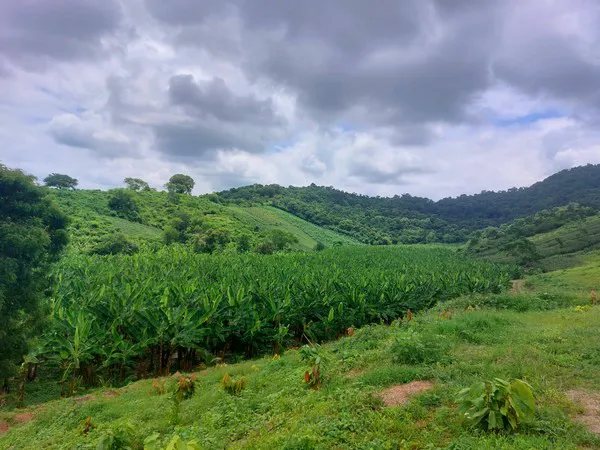
Areas recovered with cocoa and bananas
"Our project is sustained on the development of crops without deforestation," says José Uyaguari, the Foundation's representative in Ecuador. "We see that climate change and deforestation have been taking a toll on our environment and have had an impact on our river basins. The Jubones River, one of the main rivers in the province of El Oro, has increasingly lower water levels. Our objective is to draw a strategic plan, hand in hand with governmental agents, such as ministries, prefectures or mayors' offices, and institutions such as universities, for the reforestation of all these river basins, covering the 3 provinces: El Oro, Loja and Azuai."
"We are trying to recover the areas that have already been brought to a critical level by agriculture through a productive reforestation plan, with free reforestation in the protected areas with banana, coffee and fine and aromatic cocoa plants," said Néstor Canelón, of the Las Losas International Station in Manabí.
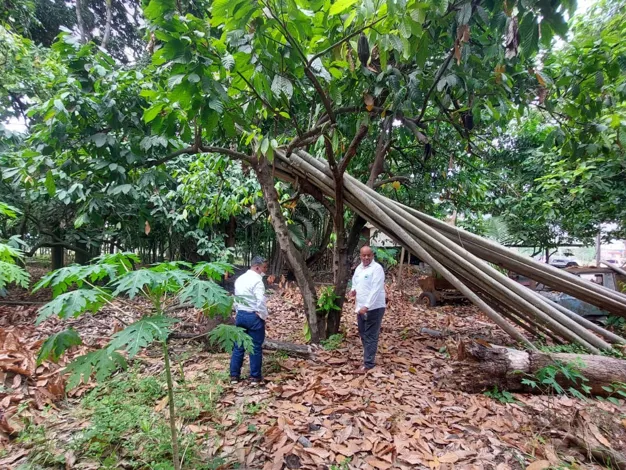
Mother plants for the germplasm bank of fine and aromatic cocoa.
"Also, Ecuador has not really implemented any soil and water conservation management. We are going to help small and medium farmers near the river basins and give them training, to help them understand the problem and guide them, so they know how to do productive reforestation and we can help them increase their income levels. As an agricultural-oriented country, we are very concerned because, if not, how will we be able to continue offering a high quality product to the markets where we ship our fruit," says José Uyaguari.
"With this initiative we seek to change the course of Ecuador's agriculture and move it towards an organic environmental setting," says José. "We are working closer together with producers and associations, to guide them in this soil and water conservation management in banana cultivation and help them in the search for markets."
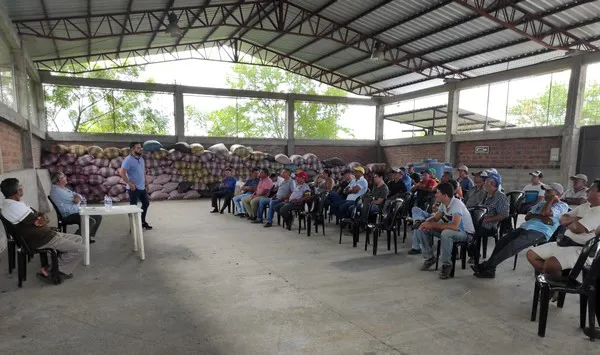
Talks to producers, teaching them organic environmental practices and soil recovery to help them become more productive.
"Producing bananas in gigantic quantities to supply the European market is causing environmental issues that we need to correct, and that starts with the small and medium producers. Education will lead to better conservation," says Nestor. "Also, we must recall that the waters that allow this production that leave the plantations are returned to the Pacific Ocean in the Humboldt Current, one of the most important currents on the planet, which is managed by three countries: Chile, Peru and Ecuador."
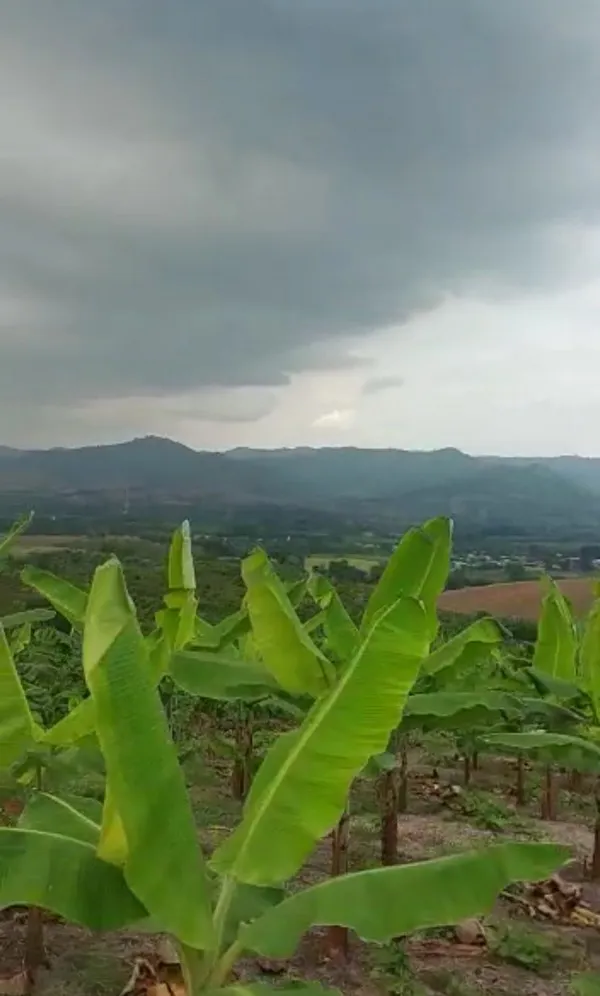
Promoting structural change to ensure environmental and socioeconomic sustainability is hard work, "but not impossible," says Néstor. "It is therefore important for us to let the world know what we are doing, so that they know about the work of the National Alejandro de Humboldt Foundation in Ecuador and are also aware of the environmental and social impact of the agro-industrial banana sector, which allows us to offer the highest quality fruit to the whole world every day. We also need support to be able to give continuity to this project, because we cannot do it alone.
(Photo: banana plantation in organic forest recovery).
"Therefore, we invite all supermarket chains in Europe to join this initiative, and as part of our ecotourism program, exporters, importers, market managers, etc. are encouraged to come and learn what we are doing for this fruit, which is so highly demanded in the European market."
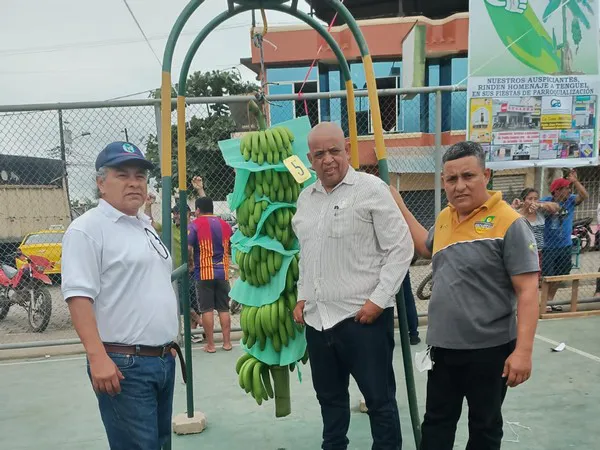
The National Environmental Foundation Alejandro de Humboldt, of Ecuador, is part of the International Foundation Alejandro de Humboldt for the promotion of international cooperation in research. "In the next few days, we will be signing alliances with the Universities of Machala and Manabí for the management of germplasm banks, to produce high quality banana seeds, and for the improvement of criollo cacao," says Néstor.
"Also, we would like to publicly thank President Laso for having taken the necessary step to facilitate Ecuador's ecological transition, as well as Prefect Clemente Bravo, since in the next few days we will be signing an environmental cooperation agreement for the protection of river basins carrying water for human consumption and for agricultural use."
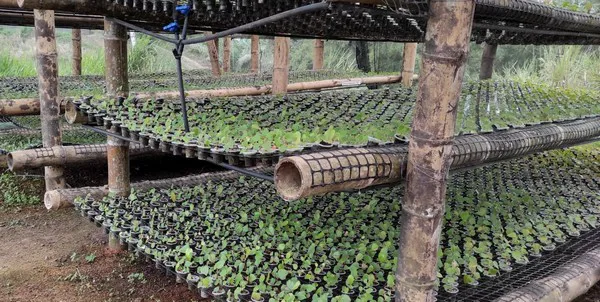
Nurseries of mother plants for reproduction in the field with seeds of organic origin
For more information:
Alejandro de Humboldt National Environmental Foundation Ecuador
José Uyaguari
Tel.: +59 3968151340
juyaguari@fundhumboldtec.org
Néstor Canelón
ncanelon@fundhumboldtec.org
